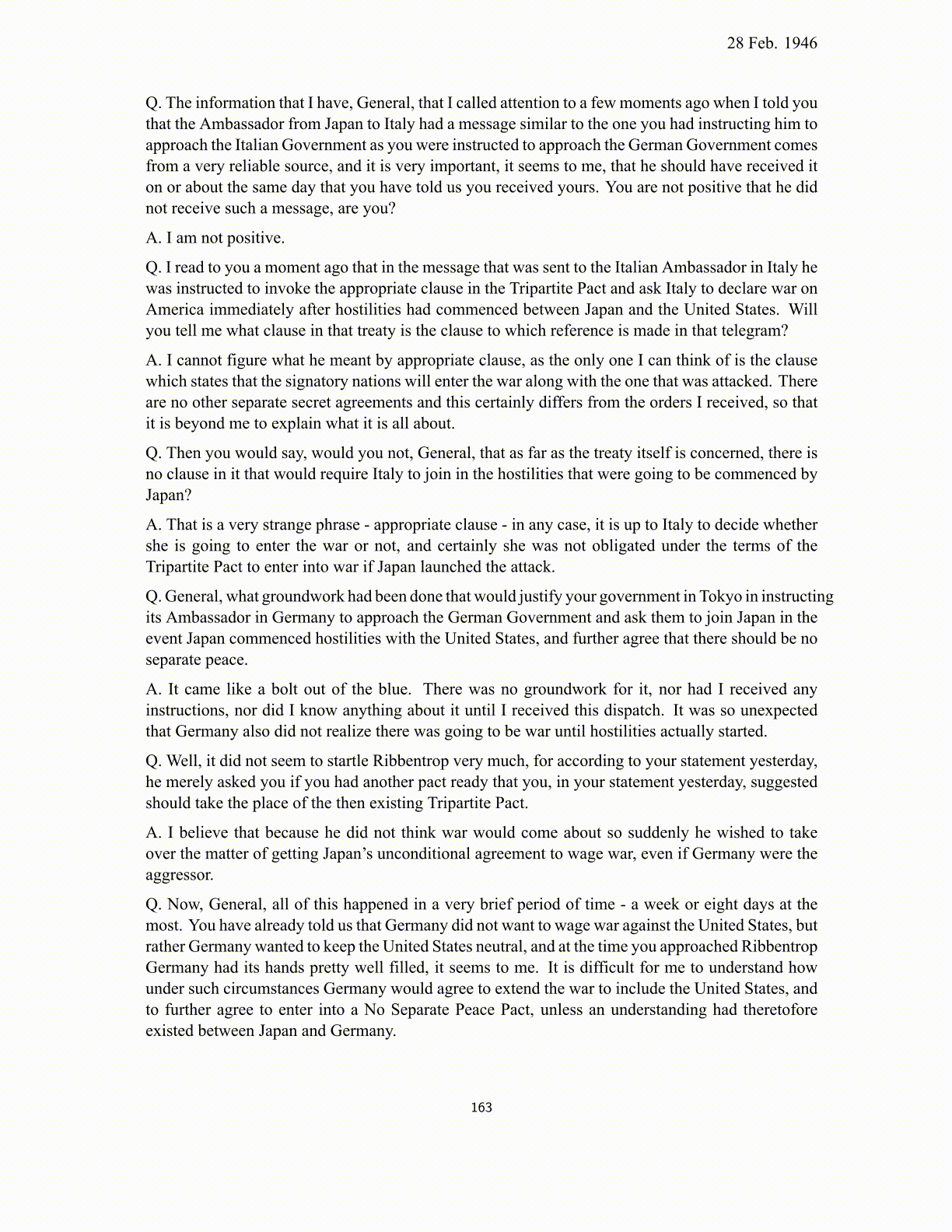
28 Feb. 1946 Q. The information that I have, General, that I called attention to a few moments ago when I told you that the Ambassador from Japan to Italy had a message similar to the one you had instructing him to approach the Italian Government as you were instructed to approach the German Government comes from a very reliable source, and it is very important, it seems to me, that he should have received it on or about the same day that you have told us you received yours. You are not positive that he did not receive such a message, are you? A. I am not positive. Q. I read to you a moment ago that in the message that was sent to the Italian Ambassador in Italy he was instructed to invoke the appropriate clause in the Tripartite Pact and ask Italy to declare war on America immediately after hostilities had commenced between Japan and the United States. Will you tell me what clause in that treaty is the clause to which reference is made in that telegram? A. I cannot figure what he meant by appropriate clause, as the only one I can think of is the clause which states that the signatory nations will enter the war along with the one that was attacked. There are no other separate secret agreements and this certainly differs from the orders I received, so that it is beyond me to explain what it is all about. Q. Then you would say, would you not, General, that as far as the treaty itself is concerned, there is no clause in it that would require Italy to join in the hostilities that were going to be commenced by Japan? A. That is a very strange phrase - appropriate clause - in any case, it is up to Italy to decide whether she is going to enter the war or not, and certainly she was not obligated under the terms of the Tripartite Pact to enter into war if Japan launched the attack. Q. General, what groundwork had been done that would justify your government in Tokyo in instructing its Ambassador in Germany to approach the German Government and ask them to join Japan in the event Japan commenced hostilities with the United States, and further agree that there should be no separate peace. A. It came like a bolt out of the blue. There was no groundwork for it, nor had I received any instructions, nor did I know anything about it until I received this dispatch. It was so unexpected that Germany also did not realize there was going to be war until hostilities actually started. Q. Well, it did not seem to startle Ribbentrop very much, for according to your statement yesterday, he merely asked you if you had another pact ready that you, in your statement yesterday, suggested should take the place of the then existing Tripartite Pact. A. I believe that because he did not think war would come about so suddenly he wished to take over the matter of getting Japan’s unconditional agreement to wage war, even if Germany were the aggressor. Q. Now, General, all of this happened in a very brief period of time - a week or eight days at the most. You have already told us that Germany did not want to wage war against the United States, but rather Germany wanted to keep the United States neutral, and at the time you approached Ribbentrop Germany had its hands pretty well filled, it seems to me. It is difficult for me to understand how under such circumstances Germany would agree to extend the war to include the United States, and to further agree to enter into a No Separate Peace Pact, unless an understanding had theretofore existed between Japan and Germany. 163